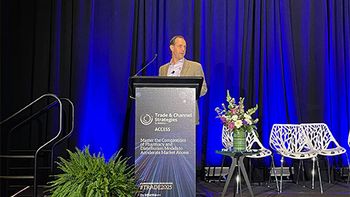
Much heat, little new light in Mylan’s Congressional hearing over EpiPen pricing
Mylan CEO sticks to authorized-generic strategy for price relief
In his opening remarks, minority chair Elijah Cummings (D-MD) recalled that after the testimony of Martin Shkreli before the same committee last year, he called committee members “imbeciles;” based on the questioning of committee members
On the flip side, Bresch didn’t make a compelling case for Mylan’s pricing practices; the company did not provide much of the documentation the committee had sought before the hearing, and Bresch couldn’t answer some basic questions about the cumulative revenue of the EpiPen, or how little control it has over the out-of-pocket costs of consumers.
For the record, Bresch’s opening statement laid out the company’s basic current economics: “The WAC for a 2 unit pack of EpiPen Auto-Injectors is $608. After rebates and various fees, Mylan actually receives $274. Then you must subtract our cost of goods which is $69. This leaves a balance of $205. After subtracting all EpiPen Auto-Injector related costs our profit is $100, or approximately $50 per pen.” It would have been interesting to explore the components of “all EpiPen Auto-Injector related costs” (the $205 figure minus the $100 profit)—but that was beyond the committee members’ comprehension. Bresch is counting on Mylan’s introduction of an
There is a long history of political leaders engaging in “jawboning”—essentially, browbeating corporations or other entities into changing their practices but without passing laws forcing those changes; that might be the worst that pharma companies experience in this current era of a stalemated Congress. According to press reports, the 21st Century Cures Act, the primary piece of current legislation that has some effect on drug availability, passed in the House but is stagnant in the Senate, and might at best be introduced during the lame-duck session after the presidential election. Passage is not a certainty in any case. Meanwhile, new pricing slugfests are looming over diabetes products, oncology and other therapy areas that have seen steadily increasing prices.
Update, 9/27: According to a variety of press reports, Mylan has adjusted the net profit figures it reported to the House committee during a 9/21 hearing. Rather than the $100 figure shown above, the company's profit was $166, less (in theory) the company's 7.4% effective tax rate in 2015. In reporting the $100 figure, Mylan assumed a standard 35% tax rate and reduced its net profit accordingly.
Newsletter
Stay ahead in the life sciences industry with Pharmaceutical Commerce, the latest news, trends, and strategies in drug distribution, commercialization, and market access.





